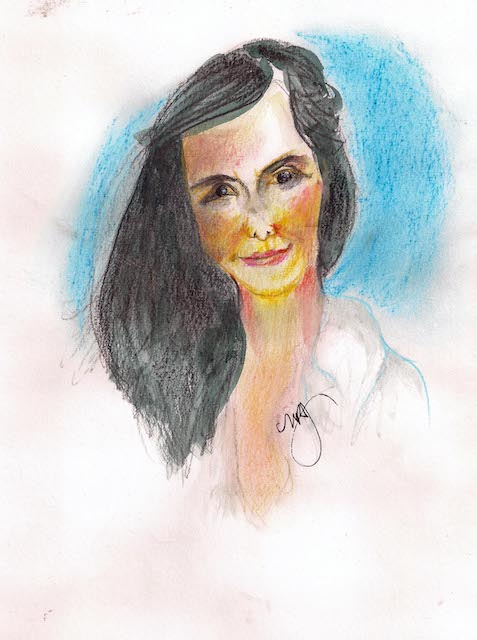Margherita Torretta: An Italian late bloomer shakes up the Scarlatti sonatas
After two years of work on the Scarlatti keyboard sonatas, Italian pianist Margherita Torretta has produced a new and very personal version of her 20 favorites. Only an Italian could give this much-misunderstood music the emotional lyricism she has discovered in it. Gone are the dry, static Baroque transcriptions from the original harpsichord writing.
Her new CD, just published (by Academy) is attracting attention for its many fresh nuances and especially its opening track, the K426 G Minor. Just a few measures into the score, Scarlatti introduces a fermata (extended rest). No other pianist I know of has strung out this pause like Margherita. Most players glide over it or give it two beats at most. She gives it four full beats, a dramatic silence that can make a listener gasp. And there are six more fermatas to come.
I asked Margherita what moved her to make full use of the dramatic pause. She said she decided that a long silence “generates emotional tension, a theatrical quality”. Her remarkable musicality ensures that her phrasing is never interrupted.

The other 19 sonatas, composed during Scarlatti’s travels in Portugal and Spain in the 17th and 18th centuries, encompass the entire world human emotions. Margherita is at ease with dance motifs, tragic harmonics, happy upbeat pieces, cultural heritage, and Scarlatti’s attraction to the full spectrum of human passions.
Scarlatti sonatas are enjoying a popular surge in recent years, tempting pianists –Europeans, Americans, Asians -- to try to master their broad range. Margherita has some advice: “Don’t be afraid to slow down, to speed up, to play the truly singable melodies with a quasi-Romantic feeling.”
Her 20 pieces chosen from a grand total of 555 sonatas make for an eclectic menu. She says she studied about 400 of them to build this program. Compared to Ivo Pogorelich’s landmark 1992 CD selection, she overlaps with him on only four sonatas. All the others are her personal choices, most of them little-known to the public. She has no common choices with Vladimir Horowitz’s 2003 recording. The late Clara Haskil’s recorded versions are considered the gold standard.
Margherita’s primary teacher, William Grant Naboré, founder of the International Piano Academy, Lake Como, cites her Italian heritage as a key to her unique sound. “She departs from the Slavic touch that we have so often heard in recent recordings,” he told me. As Margherita puts it, “Italian pianists can feel and grab the deeply theatrical element of Scarlatti’s work.” Her articulation and freedom at the keyboard are evident in this video clip. Watch for what Naboré calls her “spidery” hands.
Margherita Torretta herself is an unlikely interpreter of his monumental work. Original trained as a dancer, she was badly burned in a house fire as a teen-ager and adopted the piano at the advanced age of 18, remarkable in the world of child prodigies at the keyboard. She tells this story better than I can in her video at this address:
After several skin grafts and a complete rethink of her artistic ambitions, she chose the piano, which she had dabbled in since childhood. Reflecting on her journey from dancer to virtuoso pianist, Margherita says Scarlatti’ compositions “are definitely for brave musicians”.
END
This article is brought to you by the author who owns the copyright to the text.
Should you want to support the author’s creative work you can use the PayPal “Donate” button below.
Your donation is a transaction between you and the author. The proceeds go directly to the author’s PayPal account in full less PayPal’s commission.
Facts & Arts neither receives information about you, nor of your donation, nor does Facts & Arts receive a commission.
Facts & Arts does not pay the author, nor takes paid by the author, for the posting of the author's material on Facts & Arts. Facts & Arts finances its operations by selling advertising space.

